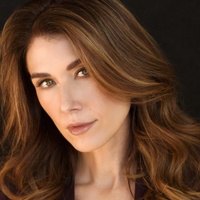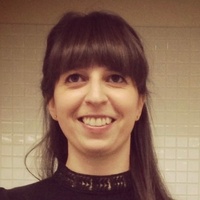On taking risks and trying new things
Prelude
The 25-year-old Los Angeles-based singer/rapper/songwriter Audrey Nuna blurs the lines between pop, R&B, and experimental trap. Nuna has built a reputation for her out-of-the-box approach to everything she does—from her razor-sharp lyricism, to her dynamic visual aesthetic, to her self-directed music videos. In 2021, she released her debut LP, a liquid breakfast, which brought her to perform at festivals like Lollapalooza, Head in the Clouds, Day N Vegas, and Hangout. After showing more of her versatility through her 2022 collaborative EP with Deb Never, chump change, she joined Ashnikko’s Weedkiller world tour as an opening act in 2023. The following year, she contributed “Pleasures” to the soundtrack of the Paramount animated film, The Tiger’s Apprentice. Now, Nuna takes the next quantum leap into her barrier breaking career with a new track, “Suckin Up,” and a sophomore album on the way.
Conversation
On taking risks and trying new things
Musician Audrey Nuna discusses keeping a sense of experimentation, focusing on world-building, and making use of boredom.
As told to Sarah John, 1478 words.
Tags: Music, Inspiration, Process, Identity.
You’re great at experimenting with mixing different genres. Can you tell me a little bit about how you keep an experimental spirit alive in your work?
To be honest, it’s very selfish for me. I enjoy blending, trying new things, and discovering something kind of hybrid, more than I do just trying to emulate other existing genres or existing songs. [Experimentation] really does come out of this selfish, dopamine-rush situation that I get from just trying to surprise myself and create something that makes me go, “Huh.” [From thinking], “I don’t know but I’m curious what that would sound like.” I would say it’s a selfish motivation.
No, that makes sense. Chasing surprise and curiosity.
Definitely. As a person, I like so many different things, and I’m really bad at just picking one, I guess. I think that manifests in a lot of the work that I do. Whether it’s indecision or focus, or a combination of both.
Having a wide variety of tastes then, too.
Totally. I think growing up—being a part of Korean culture but also American culture and walking that line—has taught me to think in that dimension. It’s just a very comfortable space for me to be in.
You prioritize the visual worlds, too, with your music videos. Is that something that comes hand-in-hand with creating the music, or is that something that comes after? Do you have a set process?
I do think that it’s all very intertwined for me. I personally love visuals just as much as I love making music. I really enjoy world-building overall. Even with these songs, I know that I’m excited about music when I start to see visuals to it.
It’s a very multidimensional process, and it all happens in a similar time frame, just because it’s more fun that way. Really trying to create some type of universe and some type of story is so much more time consuming, but I find it to be so much more rewarding.
Yeah, to really immerse yourself in all the different aspects of it?
Yeah. I’ve worked with my producer, Anwar, since I was 17. Oh, my god. I’m 25 now, which is f–ing crazy. I feel like he was such a great mentor in that space of just like, “What does it smell like? In this world, what does the food here taste like?” We always tried to think in terms of universes, worlds, characters, and stories. That was such a great way for me to creatively come up because now it’s second nature to think in those terms, which has been really gratifying for me.
How do you view the separation between projects? Do you think each album exists within its own world, or do you view songs as a loose collection? I’ve heard people talk about it being a little time capsule of that period in their life. I’m curious if, for you, each album has a central message or theme, or if it’s different?
Totally. This is only my second project upcoming, so I’m definitely new in certain ways to the process as well. I think something that really inspired me for this one was creating a character and creating almost like a movie around all the themes of this project.
Of course these characters are rooted in who I am, for sure, and it is very much autobiographical, but I also feel like there’s so much fun in creating fantasy and surrealism.
In this world of social media and everyone doing like, “What’s in My Underwear Drawer,” “Get Ready with Me,” “Vogue Beauty Secrets,” as fun as all that shit is, I do think that we are in a space where everything is so out there. With this project, I had so much fun creating and imagining a fantasy world that is rooted in truth, but is definitely also a figment of my imagination. That is just such a fun way to do it. It’s just super liberating.
That makes sense. There’s so much focus on letting people see every aspect of your life and consume every aspect of your life, that it’s fun to have a fictional world that’s not necessarily just for consumption.
Totally. I think also in rap in general, there’s so much of this—and of course that is very specific to the genre—but there’s this very almost literal approach to certain things, where it’s like, “I actually did these things.” That’s amazing, but The other side of that—creating a character, building this imaginary world around her life, and the way that she grew up, and all these things—that is also just another style of making music. It’s storytelling, and really immersing yourself in that versus shying away from it.
It stretches different muscles than the more diaristic, autobiographical writing.
Yes, a hundred percent. There’s a balance to be found, of course, that also organically happens when you write about the things that are therapeutic to yourself but also exciting.
What keeps you going when you lack inspiration?
That’s a great question. I used to think that when I didn’t have inspiration, I needed to force it or try to find it. With this project, I learned that sometimes the best thing you can do is take the time to be bored, and just even go to the grocery store and, I don’t know, just take time and go slower. Make the pace a bit slower, versus aggressively trying to find things. I feel like there is a balance to be had with that.
For this project specifically, I found that slowing the pace was really helpful for me. I grew up in the suburbs of Jersey, and I think a lot of what fueled so much of my creativity was finding the space to be bored. With this project I really tried to do that. I always surprise myself with the things that pique my interest when I create that space of boredom.
You grew up in the suburbs, and you mentioned an awakening as well when you went to NYU, like a sense of possibility from being around an array of different cultures. I’m curious, have you had other moments of awakening like that, or other similar times where you felt a new sense of possibility?
It’s interesting, because when I moved to LA, I do think it was a version of that. I think moving to a new city like LA—where I really had to figure out my community, and try to find the romance in a city that to me sometimes felt super synthetic, honestly, and a bit contrived—having to find what was real to me, that in itself, was a whole other type of awakening. It was definitely not as pleasurable, but it was still really nourishing and really important for my development as a person.
Do you want to talk a little bit about the creative process behind your latest project?
Me and Anwar worked on this one at his house, in his home studio with his kids running around, his wife making dinner. It was a very organic process like how we normally do a lot of the songs, which is just sitting around, to be honest, and being open.
Can you talk a little bit about the emotional approach that you’ve taken with some of the work that’s coming out in the future?
It’s related to this whole new awakening that I had in LA, about a little bit of a darker side of growing up and having these harsh realizations about the world around you. Losing certain parts of yourself, losing certain relationships, working relationships. The underbelly of growing up, and everyone goes through these things, I would say.
Fully processing that was really the process of this entire album. For me, it was very healing. I process a lot of emotions through making music, because I’m pretty emotionally constipated. It’s pretty hard for me to tell how I’m feeling a lot of the time. Music has been such an amazing vessel for me to be able to even figure out and process these experiences.
For example, moving to a whole new city, moving away from my family, and the shittier side of growing up. The project is really about how these realizations can liberate you and ultimately make you stronger instead of making your spirit harden—or, basically, the question of: How can you stay soft through certain experiences such as these when it comes to growing up?
Audrey Nuna Recommends:
Mindhunter (season 1) by David Fincher
Roadrunner: A Film About Anthony Bourdain directed by Morgan Neville
- Name
- Audrey Nuna
- Vocation
- musician
Some Things
Pagination



